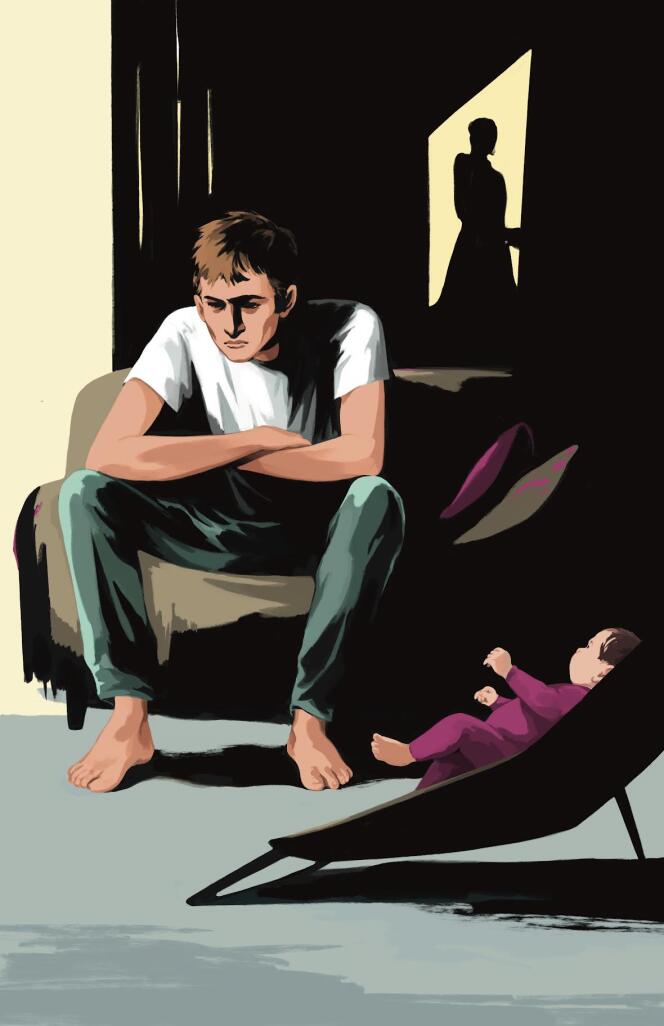


When his wife told him she was pregnant, Vincent was overjoyed. In the months that followed, he bought a cot, went to the chemist as often as necessary and felt like he was well prepared. However, when the birth arrived in October 2021, he didn't feel the "automatic love" he'd expected. The midwife slid the baby into his arms, saying, "This is your daughter; she'll be with you for life." This innocuous yet monumental statement gripped the young father; it was at this moment, he confided, that he began to spiral down "the slide."
This 38-year-old from the French city of Lyon (who wished to remain anonymous) was born very prematurely. As a result, he has suffered from cerebral palsy, severe digestive problems and constant interaction with the medical world. When he had a child, his health problems took on a whole new dimension in his thoughts. "I'd been dealing with death since birth, but, for the first time, I was mortal to someone. I had a huge responsibility and feared that my body would give up on me for good. I said to myself, 'I'm going to die and abandon her; I can't get attached to her.'"
When he came back from the maternity ward, Vincent told his mother all about the birth. "I said that the nurses were amazing, that the hospital was great." Nothing about the baby and nothing about himself: "I was cut off from my emotions." When his wife came home, he couldn't imagine that the baby would stay at home. This 30-something man, "lively and cheerful" in normal circumstances, would just sit prostrate in an armchair. A month and a half later, his wife was at her wits' end. She decided to consult a psychiatrist the couple had met shortly before giving birth. The doctor concluded that he was suffering from postpartum depression.
At first, Vincent didn't believe it – he could have sworn that this disorder could only affect mothers. This was hardly surprising, given the lack of interest in this pathology among men in both public debate and in the scientific literature, which contains "far more articles on depression in mothers than in fathers," according to Romain Dugravier, a psychiatrist at the Psychiatry and Neurosciences University Hospital Group of Paris (GHU Paris) and the department head at the Paris Brune Institute Perinatal Psychopathology Center (CPPB).
Yet Vincent's situation is not unique. The French Longitudinal Study since Childhood (ELFE) cohort, which tracks 18,000 children born in France in 2011, has made it possible to estimate the prevalence of such cases. Postpartum depression is thought to affect 5% of fathers, compared with 15% to 16% of mothers, according to a study examining the effects of paternity leave on parents' mental health published in The Lancet Public Health in January 2023. The Edinburgh Postnatal Depression Scale (EPDS) questionnaire was given to 13,000 mothers and 11,000 fathers two months after birth.
You have 58.21% of this article left to read. The rest is for subscribers only.
